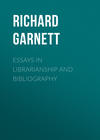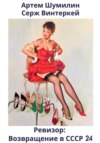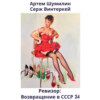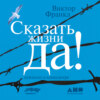Читать книгу: «Essays in Librarianship and Bibliography», страница 3
PUBLIC LIBRARIES AND THEIR CATALOGUES3
"At the laundress's at the Hole in the Wall, Cursitor's Alley, up three pairs of stairs, the author of my Church History – you may also speak to the gentleman who lies by him in the flock bed – my index-maker." Thus Mr. Edmund Curll, apud Dean Swift, and the direction certainly does not convey an exalted idea of the social status of the gentleman who shared the hole of the ecclesiastical historian.
It is gratifying to remark the augmented consideration, in our day, of this despised fraternity. There is no omission for which an author of serious pretensions is now more frequently taken to task than that of an index; and if on the one hand it is unsatisfactory that the offence should be so frequent, it is on the other encouraging that its obnoxiousness should be so generally recognised. "Every author," sententiously observes an American sage, "every author should write his own index. Anybody can write the book." Without going quite to this length, very many are disposed to affirm of a book without an index what the Rev. Dr. Folliott, in "Crotchet Castle," affirms of a book without matter for a quotation, namely, that it is no book at all. Now, what Mr. Curll's index-maker was to Mr. Curll, librarians are to the general republic of letters. Every visitor to the Reading Room of the British Museum who is guided by the mere light of nature persists in styling the catalogue "the index": their promotion in public consideration has accordingly kept pace with that of their humbler allies, or rather exceeded it, for if not starting originally from a point quite so depressed, they have attained one much more exalted. The cause, however, is the same in both cases – the enormous increase of knowledge, the need of a rigorous classification of its accumulated stores, and the development of a specialised class of workers to discharge this function. Next to the importance of information existing at all is that of its being garnered, classified, registered, made promptly available for use. A good public library has been aptly compared to a substantial bank, where drafts presented are duly honoured; and librarians, as such, occupy much the same relation to the republic of letters as the commissariat to the rest of the army – their business is not to fight themselves, but to put others into a condition to do it. As a consequence, their collective organisation is much more complete than of yore; and their calling assumes more and more the character of a distinct profession requiring special training, with a distinct tendency to gravitate towards the Civil Service. Time has been when a librarianship was most probably a sinecure, or at best a "Semitic department," created for the express benefit of desert too angular and abnormal to fit into recognised grooves. Lessing was a typical specimen of this class of librarian, installed at Wolfenbüttel nominally to catalogue books but in reality to write them. This type is now nearly extinct in England, except here and there in one of those colleges which Mr. Bagehot thought existed to prevent people from over-reading themselves, or some cathedral, where the functions of librarian are entrusted to a church dignitary or a church mouse. Elsewhere the professional character of the librarian's pursuits is pretty generally recognised; the need of special training and special qualifications is commonly admitted; and the result has been a general improvement in the status and consideration of librarians, the more satisfactory as it is in no degree due to quackery or self-assertion, but has come about by the mere force of circumstances. It may not be uninteresting briefly to trace the steps by which librarianship has become a recognised profession, and the public library an acknowledged branch of the State service.
"Prior to the year 1835," says Mr. Winter Jones, in his inaugural address before the first Conference of Librarians, "there had been little discussion, if any, about public libraries." In that year – the year of the publication of the epoch-making works of Strauss and De Tocqueville, and of the removal of Copernicus and Galileo from the Index Expurgatorius– the complaints of a discharged clerk led, more Britannico, to an inquiry into the state of the British Museum, which would at that time hardly have been granted upon public grounds. From that inquiry dates everything that has since been done. Some not very judicious changes in the administrative machinery of the Museum were the chief ostensible results, but the real service rendered was to create a consciousness in the public mind of the deficiencies of the national library – strengthened no doubt by the contemporaneous disclosures of the condition of the public records. The way was then prepared for the truly great man who assumed office as Keeper of the Printed Books in 1837, and whose evidence had mainly created the impression to which we have referred. To the administration of the British Museum, Sir Anthony Panizzi brought powers that might have governed an Empire. Sir Rowland Hill is not more thoroughly identified with the penny post than Sir A. Panizzi with the improvements which have made the Museum what it is, and not merely those affected immediately by himself, but those which owe, or are yet to owe, their existence to the impulse originally communicated by him. In 1839 the Museum received from Sir A. Panizzi and his assistants its code of rules for the catalogue – the Magna Charta of cataloguing. In 1846 the enormous deficiencies of the Library, as ascertained by prodigious labour on the part of the librarian and his staff, were fairly brought to the knowledge of the nation. In 1849 Sir A. Panizzi's multitudinous reforms were tested and sanctioned by one of the most competent royal commissions that ever sat, whose report offers at this day a mass of most amusing and instructive reading. We may note in its minutes of evidence, as subsequently in the yet more remarkable instance of President Lincoln, how little able Mr. Carlyle is to recognise his hero when he has got him, and may obtain a new insight into the extraordinary powers of the late Professor De Morgan. In 1857 Sir A. Panizzi's exertions received their visible consummation in the erection of the new Reading Room and its appendages, capable of accommodating a million volumes; and about the same time his political and social influence raised the Museum grant to an amount capable of filling this space within thirty years. Such an example could not fail to elevate the standard of librarianship all over the country, and it was now to be supplemented by the movement with which the name of Mr. Ewart is chiefly associated. The comparative failure of the Mechanics' Institutes, from which so much had been expected, had led the friends of popular education to take up the subject of free libraries. Mr. Ewart's Act (1850) forms another era in library history, and its operation, while slowly but surely covering the country with libraries supported out of the rates, has tended more than anything else to elevate the profession by making it a branch of the public service, and offering some real, though as yet hardly adequate, inducement to men of ability and culture to follow it. The recent library conferences have shown what an admirable body of public servants England possesses in these administrators of her free libraries. The next great era in library history dates from 1876, when the practical genius of the Americans led them to perceive the benefit of giving bibliothecal science a visible organisation. The Philadelphia Conference of that year resulted in the foundation of the American Library Association, the prototype of our own. About the same time the American Library Journal– now the organ of the library associations of both countries – was established, and the Bureau of Education issued its volume of reports, the most valuable collection, not merely of statistics, but of close and sagacious discussion of library questions, that has yet been produced anywhere. That the American example should have been so promptly imitated in this country is mainly due to Mr. E. W. B. Nicholson, the librarian of the London Institution. Mr. Nicholson conceived the idea of an English conference on the American model. Messrs. Tedder, Harrison, Overall, and other distinguished metropolitan librarians, contributed their time and their marked capacity for business towards carrying it out. Mr. Winter Jones, as Principal Librarian of the British Museum, gave the conference éclat by accepting the office of President, and the welcome presence of a strong deputation of American librarians, together with some distinguished representatives of the profession from the Continent, imparted the international character which it alone needed to ensure success. The second conference, held at Oxford, was equally successful, and the present year is to witness a similar gathering at Manchester. An English Library Association has been called into being, and the Library Journal, the organ of this Association, equally with the American, indicates and records the active development of library science in both countries. One thought clearly underlies all these various undertakings – that library administration actually is a science and a department of the public service, and that it is only by these matters being thus generally regarded that the librarian can render full service to the public, or the public full justice to the librarian.
We now propose to offer a few observations on some of the points of principal national concern connected with the administration of libraries in general, and, as from this point of view is inevitable, of the national library in particular. In so doing we must acknowledge our special obligations to the following works, and recommend them to the study of all interested in library subjects; 1. The Transactions and Proceedings of the Conference of Librarians held in London, October 1877, edited by E. B. Nicholson and H. R. Tedder: Chiswick Press. 2. The Library Journal, official organ of the Library Associations of America and of the United Kingdom: Trübner. 3. Public Libraries in the United States of America; Special Report. Washington: Bureau of Education. To these may be added Mr. Axon's able article on the Public Libraries of America in the last number of the "Companion to the Almanac."
It might seem that not much could be said respecting the mere purchase of books, but even this department is subject to the general law of specialisation, and the character of a collection must vary as it falls within the category of national, academical, or municipal libraries. The mission of the national library is the simplest: its character is determined for it by the enactment which in most civilised states constitutes it the general receptacle of the national literature, good, bad, and indifferent, and imposes the corresponding obligation of rendering itself the epitome of foreign literatures, as far as its means allow. Every such library is the mirror of its time, and perhaps even its services to contemporaries are of less real account than those which it performs for posterity in preserving the image of the past. This is the apology of the librarian's anxiety to collect what the uninitiated regard as trash. Yesterday's news-sheet, waste paper to-day, will be precious after a century, and invaluable after a millennium. The same principle justifies the heavy expenditure which it is frequently necessary to occur in procuring what is truly illustrative of the history of a life or a nation, even when it comes in the costly shape of a bibliographical rarity. A black-letter ballad on a Smithfield martyrdom, a collection of cuttings illustrating Byron or Dickens, must be secured for the national Museum if at all within the compass of its resources. Hardly as much can be said for another class of rarities – the vellum page or the sumptuous binding which makes a volume a work of art, but adds nothing to the value or significance of its contents. Such luxuries, the darlings of the genuine bibliographer, the tests of his professional taste and the chevaux de bataille of his collection, are nevertheless only to be indulged in by a conscientious man when he is certain that such an indulgence is compatible with the ends for which national libraries exist. Even the ideal of rendering the library a representative of the thought and knowledge of the age must either be moderated, or pursued at the risk of incurring comparatively expenditure. A new periodical gives pause: it must be taken, like a wife, for better or worse; for once commenced it can seldom be dropped. New editions of scientific works occasion much perplexity: it is equally vexatious to be behind hand with the latest results of discovery, and to spend money over something which is certain to be soon superseded by something better still. In such cases compromise alone is possible, and compromise can never be quite satisfactory. Such difficulties press less heavily on the curators of academical libraries, where the demand for universality is not preferred, and even an accidental circumstance may legitimately impart a bias to the entire collection. The acquisition of Professor De Morgan's books, for instance, has made it imperative upon the University of London to be always strong in logic and mathematics, at all events. The principle of specialisation, indeed, admits of being carried very far in a large community, where it is possible to conceive groups of libraries working in different directions to a common end, and mutually completing each other. Such a system was supposed to have been inaugurated at Oxford, although we have only heard of two colleges which are actually working it out – Worcester, with its deliberate and most laudable bent towards classical archæology; and All Souls', whose noble collection of law books might, if law were more scientifically taught in this country, contribute to make Oxford a great school of jurisprudence. Some of the other college libraries, it is to be feared, justify the philippic which Mr. Ernest Thomas, at the Oxford Conference, clenched with this climax of scornful reference to a flagrant case, "The librarian receives only ten pounds a year, and I am sorry to say that even that is too much."
The municipal librarian has his peculiar difficulties. His means are seldom large, and out of them he has frequently to provide for branch libraries, involving numerous duplicates. He has to study not only what his public wants, but what it thinks it wants; not only to make ready for guests, but to "compel them to come in." This raises the difficult question how far the taste for fiction should be condescended to in free libraries. We cannot agree with those who think that public money may be properly expended upon trashy novels, in the chimerical hope that the appetite for reading they will probably create may be devoted to worthier objects. It is far more likely to destroy any latent capacity for serious reading which a more judicious treatment might possibly have called forth. At the same time, the adverse experience of mechanics' institutes has shown that it will not answer to be too austere in such matters, and indeed the man who is capable of relishing Thackeray or George Eliot is not far from the kingdom of culture. Other novelists of a less purely intellectual cast may awaken the love or stimulate the pursuit of knowledge. Scott indirectly teaches not a little history, Marryat not a little geography; either might provoke a craving for further information, and both are adapted to keep the mind in a state of healthy curiosity, susceptible of new impressions and ideas. The municipal librarian will also consider the especial circumstances of his locality. Leeds, we understand, collects everything relating to the history or processes of the woollen manufacture, and the example will no doubt be generally followed. One of the most useful suggestions made at the Librarians' Conference was that provincial librarians should make a point of collecting publications printed in their own districts, as well as the municipal documents which are rarely deposited in the British Museum. It met with a cordial response, and we believe is being extensively carried out.
Due provision having been made for replenishing the library with the books most appropriate to its circumstances, the question of the catalogue next presents itself. The controversies which used to prevail on this point may be regarded as in a great measure laid to rest. The rules of cataloguing, framed in 1839 by Sir A. Panizzi, Mr. Winter Jones, and their staff, will, we believe, be now generally accepted by bibliographers as embodying the principles of sound cataloguing.4 They may not be equally satisfactory to the general public, with its preference for rough and ready methods; a very short experience, however, will convince any man that such methods in cataloguing mean simply hopeless confusion, and that it is far better that a book should be now and then hidden away than that entire categories of books should be entered at random, with no endeavour at principle or uniformity. On the part of almost all qualified bibliographers, the Museum Catalogue receives the sincerest form of flattery – imitation: the few points still debated, such as whether anonymous books with no proper name on the title-page should be entered under the first substantive or the first word, are not material; and the impediments sometimes experienced in consulting it arise from no defect in its cataloguing rules, but from the great difficulty in digesting such long and complicated articles as Academies into a perspicuous and logical arrangement. The problem is no longer one of cataloguing, but of classification, and in this department ample room remains for discussion and scientific progress. The question of the strictly classified catalogue versus the strictly alphabetical, may, indeed, be considered as decided. The former method may have answered in the library of Alexandria; but the multiplicity of the departments of knowledge in our own day, their intricacy and the nicety with which they blend and shade into each other, render cataloguing solely by subjects a delusion. A catalogue of books on any special subject must either be imperfect, or must contain a large number of entries repeated from other catalogues; while, in any case, the reader can never satisfy himself without a tedious search that the book he has at first failed to find is not after all actually in the library. If, nevertheless, a subject catalogue without a general alphabetical arrangement is often useless, it must be admitted that an alphabetical catalogue without a subject index is not always useful. It is somewhat humiliating for the librarian unprovided with this valuable auxiliary, to find himself dependent upon the classified indexes to the London publishers' list and Brunet's Manuel du Libraire for information which he ought to be able to supply from his own catalogue. Even the Bodleian, we perceive, is about taking measures to prepare an index of subjects, and the Bodleian is a library for scholars who might not unfairly be expected to bring their bibliographical information along with them. The need must evidently be more imperative in libraries which assume a distinctly educational function, and in those which, like the national and most municipal collections, are supported at the expense of the learned and the ignorant alike. The recognition of the want, however, imposes an additional strain upon the resources of the institution, which the British Museum, at all events, over-burdened as it is already, cannot encounter without a considerable addition to its resources. The question of classification is, moreover, most difficult of solution. Only two points seem universally agreed upon: that the best subject index must be far from perfect, and that the worst is far better than none. Two principal methods are proposed for adoption. The first is the simple and obvious one of recataloguing every book entered in the Alphabetical Catalogue in the briefest possible form, and breaking up these titles into sections, according to subject, the alphabetical order being still preserved in each. Thus Simson's "History of the Gipsies" would be found in the General Catalogue entered at length, and again in an abridged form in a special index of books relating to the Gipsies, which would refer the reader to the General Catalogue. The other system is the so-called Dictionary Catalogue, which combines the main entry and the subject entry in the same alphabetical series. In such a catalogue Simson's book would be entered twice over, under Simson and under Gipsies; while Paspati's "Dictionary of the Dialect of the Turkish Gipsies," if the librarian were as accommodating as some of his fraternity, would stand a chance of being catalogued four times over, under Paspati, Gipsies, Turkey, and Dictionaries. This system, first brought forward by Mr. Crestadoro, the very able librarian of the Manchester Free Library, and retouched by Messrs. Jewett, Abbott, and Noyes, in the United States, has been thoroughly discussed in Mr. Cutter's masterly contribution to the American report on public libraries. Mr. Cutter, on the whole, supports the plan, whose defects he has nevertheless stated with his usual force and candour. The principal objections are the great bulk of a catalogue constructed upon such a plan, and the sacrifices of one of the principal advantages of an alphabetical classed index, the congregation of a great number of minor subjects into a grand whole. In such an index, for example, works on the liberty of the subject, Bankruptcy, Divorce, though formed into special lists, would still be found together within the covers of the same comprehensive volume on law, and, taken all together, would afford a general view of whatever existed in print upon that grand division of human knowledge. In the Dictionary Catalogue, where authors and subjects are thrown together in the same alphabetical series, this advantage would be lost; Bankruptcy would be in one part of the catalogue, Divorce in another, and a general view of the entire body of legal literature would not be available at all. The inconvenient bulk of a Dictionary Catalogue (except in the case of small libraries, and any small library may one day become a large one), would be owing to the necessity for multiplying cross-references. To take Mr. Cutter's own illustration, a treatise "On the Abolition of the Death Penalty" must be entered along with other books referring to the subject under the head of "Capital Punishment." The average reader, however, will not think of looking for it there. He will turn to "Death" or under "Penalty," and, not finding the book under either heading, will conclude that it does not exist in the library. Two cross-references to "Capital Punishment" must accordingly be made for his accommodation; and, after a few generations of literary industry, the catalogue, like the proverbial wood, would be invisible on account of the entries, generally speaking; the cardinal error of plans for dictionary catalogues appears to us to be an excessive deference to the claims of the average reader. Nothing can be more natural, considering that these plans originated in Manchester and were perfected in the United States, where the educational character is much more distinctly impressed upon libraries than in England, and where the appetite for knowledge is as yet in advance of the standard of culture. It is fortunate when the librarian is able to consider not merely what may be most acceptable to a miscellaneous body of constituents, but also what is intrinsically fit and reasonable.
We must hold, then, that the alphabetical index of subjects should be the auxiliary and complement of the Alphabetical Catalogue, not a part of it; that each book should be entered in it, as in the catalogue, once and once only; that the minor indexes should be grouped together so as to form collectively a whole (e. g. ornithology and ichthyology, as sub-sections of zoology); and that the operations of cataloguing and indexing should go on pari passu. If this is attended to for the future, the future will take care of itself; but "not Heaven itself upon the past has power," and it is discouraging to think upon the immense leeway which remains to be made up in most of our great public libraries. The experience of the Bodleian will be very valuable, and we must confess to much curiosity to see how long the operation of classifying its multifarious contents will take. In the British Museum the foundation of a classed catalogue has already been laid by a simple process. As fast as the titles have been transcribed for insertion in the three copies of the catalogue by a manifold writer, a fourth copy has been taken, and this copy is arranged in the order of the books on the shelves. As the various subjects are kept together in the library, such an arrangement is practically equivalent to a rough classed catalogue, which could be digested into order with comparative facility. The publication of such a classified index, reduced to the utmost possible brevity, offers, as it seems to us, the best solution of the vexed question of the publication of the Museum Catalogue. On this point much remains to be said. Meanwhile, before quitting the subject of cataloguing methods, a tribute is due to Mr. Cutter's important contribution to the subject, in his rules for his Dictionary Catalogue. Next after the settlement of the Museum rules in 1839, these form the most important epoch in the history of cataloguing. Agreeing with the latter rules in the main, and when differing, generally, as we must think, not differing for the better, they nevertheless contain a most valuable body of acute reasoning and apt illustration, which it did not fall within the province of the Museum authorities to provide; they bring unusual experience and ability to bear upon the intricate subject of classification, and are further reinforced by most ingenious remarks on the economy and manipulation of print, making the mere variations of type instructive.
Assuming the catalogue to be completed, the question remains for decision whether it shall be printed. In most cases this question is easily determined with reference to the circumstances of the individual library; but in one instance the nation claims a voice in the matter. It is hardly necessary to say that we refer to the Catalogue of the British Museum, the theme of forty years' controversy. Every one will admit the intrinsic superiority of a catalogue in print over a catalogue in MS. The question is, whether the advantage may not be bought too dear. To form a sound opinion on this point it is necessary to have an approximate estimate of the extent of the Museum Catalogue, and of the expenditure and the time involved in the undertaking to print it. Some statistics may accordingly be useful. The printed volume of the catalogue containing letter A, published in 1841, has about 20,000 entries. It forms about a twentieth part of the catalogue as it now exists, which would accordingly comprise about 2,000,000 entries, in about 100 folio volumes. In addition, however, to these titles now existing in the catalogue, there are about 200,000 titles and cross-references awaiting final revision, and which, unless the present state of this revision is very considerably accelerated, will not be ready for several years. During all this period, titles for new acquisitions will keep pouring in at the rate of 40,000 per annum. All the time that the catalogue is at press, somewhere between a decade and a generation, they will continue to pour in, and will have to be included as far as possible. We must consequently expect to have to deal with from 3,000,000 to 4,000,000 titles, occupying from 150 to 200 volumes folio. It is clear that no private individual could afford either to purchase or to store such a catalogue. It would, therefore, only be useful to such institutions as might buy it or receive it as a gift. Unlike the newspapers we have mentioned, its usefulness would diminish in the ratio of its antiquity, and it could only be kept up to the mark by a succession of supplements. The total cost of providing it, minus these supplements, may be roughly estimated at £100,000. We scarcely think that Government will incur such an expenditure for such a purpose.
We should ourselves have little hesitation in pronouncing it undesirable to print the Museum Catalogue as it stands, merely for the convenience of the public. It is quite another question whether a recourse to print may not be desirable in the interests of the Museum itself, and from this point of view the answer must be widely different. It is desirable, and will shortly become imperative. The reason is prosaic, but unanswerable: the MS. catalogue cannot be much longer accommodated in the Reading Room. Partly from necessity, partly from oversights, the Museum Catalogue is most extravagant in the matter of space. To preserve the alphabetical order of the entries, the titles are necessarily movable, pasted, therefore, on each side of the catalogue leaf, thus trebling the thickness of the latter. It is equally indispensable that wide spaces should be left between the entries when a volume is first laid down, and that when these become insufficient from the number of additions, as is continually happening, the over-charged volume should be divided into three or four. These inconveniences are unavoidable. It can only be regretted that part of the available space of every slip is lost in transcription; that scarcely a single transcriber appears to have studied the art of packing; and that the catalogue is over-run with practically duplicate entries of slightly differing editions, transcribed at full length while they might have been expressed in a single line. From all these causes the Museum Catalogue is rapidly becoming unmanageable, and the time is approaching when the Reading Room will contain it no longer. Something might no doubt be done to postpone the evil day by excluding the map and music catalogues from the room; but apart from its inconvenience, such a measure is obviously a mere temporary palliative and ultimate aggravation of a difficulty which acquires strength not eundo, but by standing still. The bulk of the catalogue must be reduced, and we are not aware that any method has been suggested, or exists, except a recourse to print. It is unfortunate that this purely administrative measure, founded on no preference for print over manuscript as such, but the simple dictate of an economic necessity, should be so constantly confounded with the totally different proposition to print and publish the catalogue like any other book, on the expense and inutility of which we have already commented. Publication is not in question: it is simply for the authorities to consider whether the bulk of the MS. catalogue will not some day shut out the public from access to it; and if this is found to be the case to lose no time in averting the evil. We do not believe that the present Principal Librarian, or his predecessor, entertains any doubt upon the subject; the ultimate decision, however, rests neither with the Principal Librarian nor the Trustees, but with the Treasury. From the Treasury's point of view, it is to be observed that the present system is financially justifiable only on condition of its being persisted in to the end of time. If a resort to print will one day be compulsory, existing arrangements are the climax of inconsiderate wastefulness. That transcribing is cheaper than printing may be admitted, though it has hardly been demonstrated. But to print is manifestly cheaper than to print and transcribe also. Yet this is just what the Museum is doing if the catalogue is ever to be printed at all. There are about 250,000 titles for the new catalogue still remaining to be transcribed. To transcribe these at the present rate of progression would occupy about fifteen years, but let us say ten. During this period titles for new acquisitions would be coming in at the rate of 40,000 a year. These would also be transcribed. The total number of transcripts would thus be 650,000. Now it seems to be seriously contemplated by the advocates of a complete printed catalogue that all this enormous mass of careful copy shall in a few years be completely superseded by print, and rendered absolutely useless. After paying, let us say, threepence a slip to do its work, the nation is to pay fourpence a slip more to undo it, and is to be charged altogether twice as much as it need have been if it had known what it wanted from the first. It is, indeed, high time for the representatives of the nation in these matters to determine once and for ever whether the catalogue is to be in print or manuscript. If MS., let the idea of print be authoritatively discountenanced; but if print, let the ruinous system be abandoned of paying highly for work performed only to be undone.































